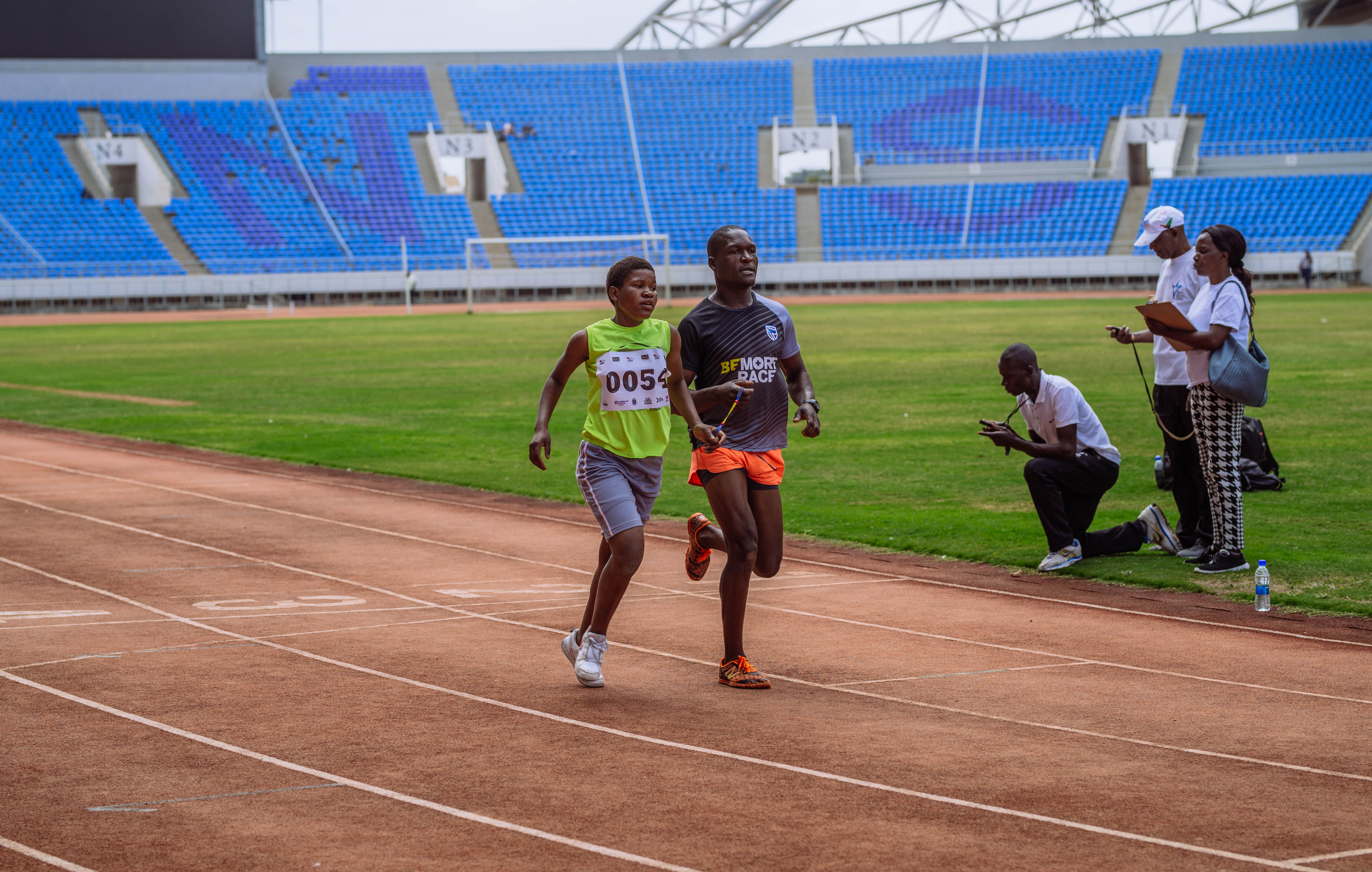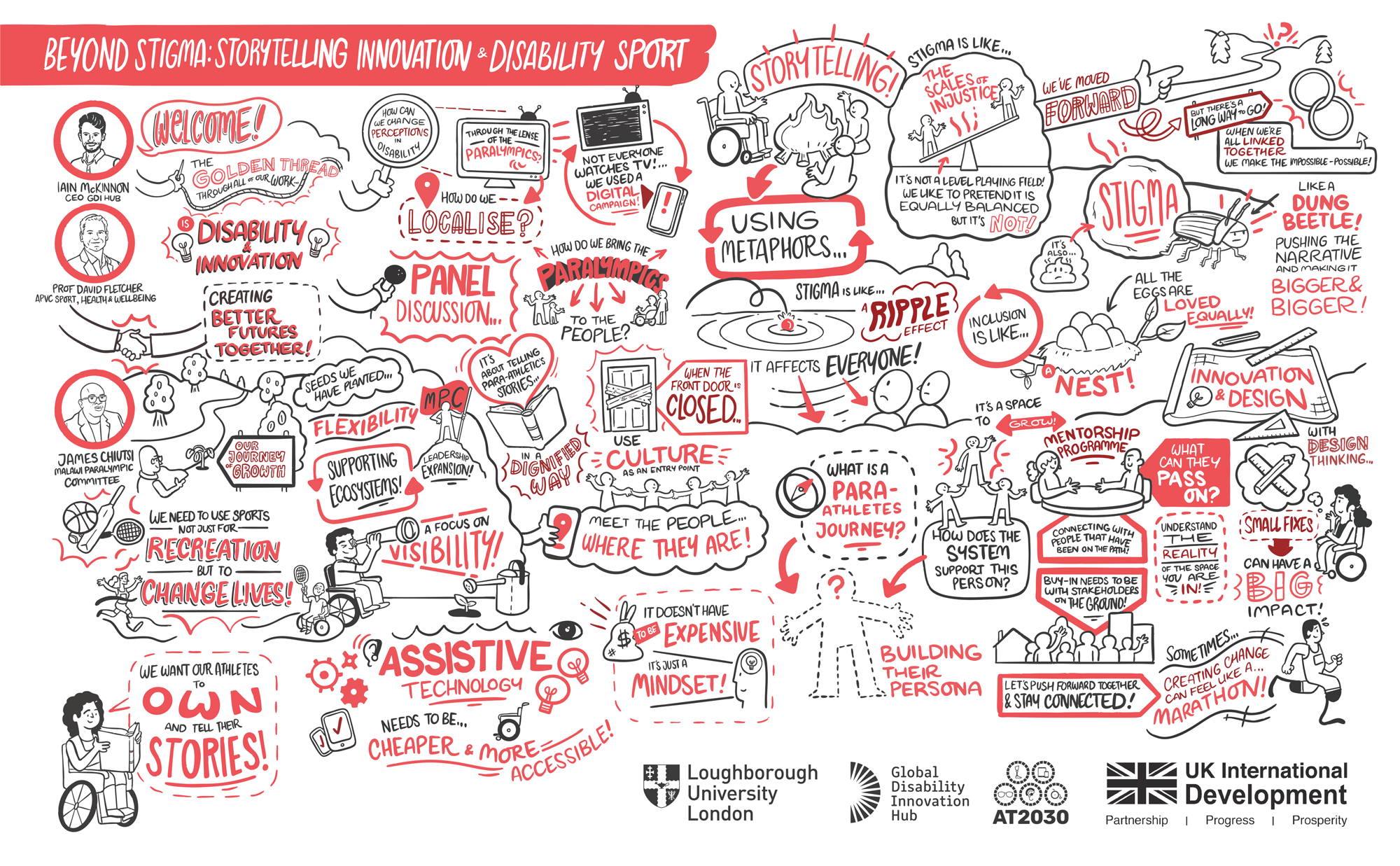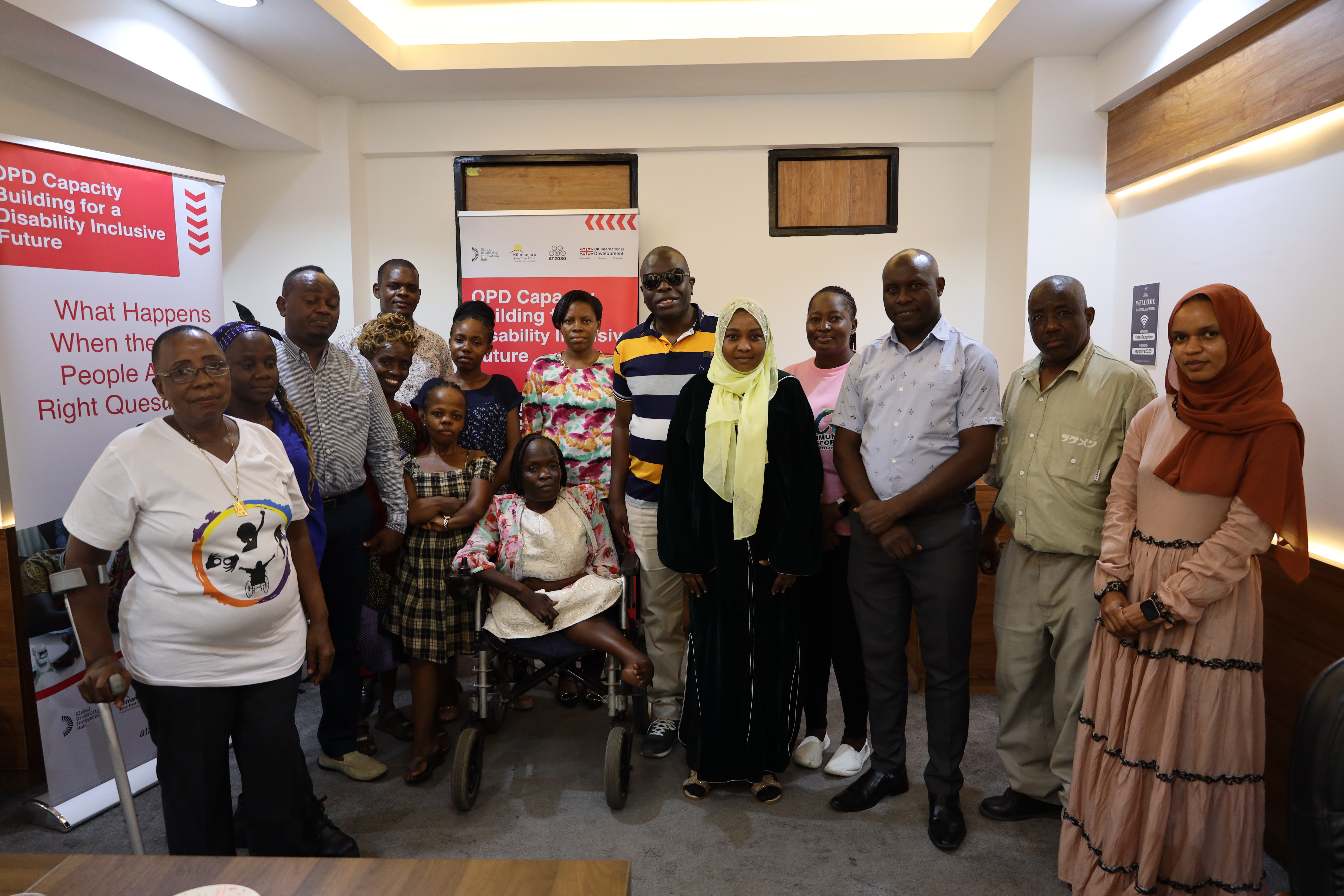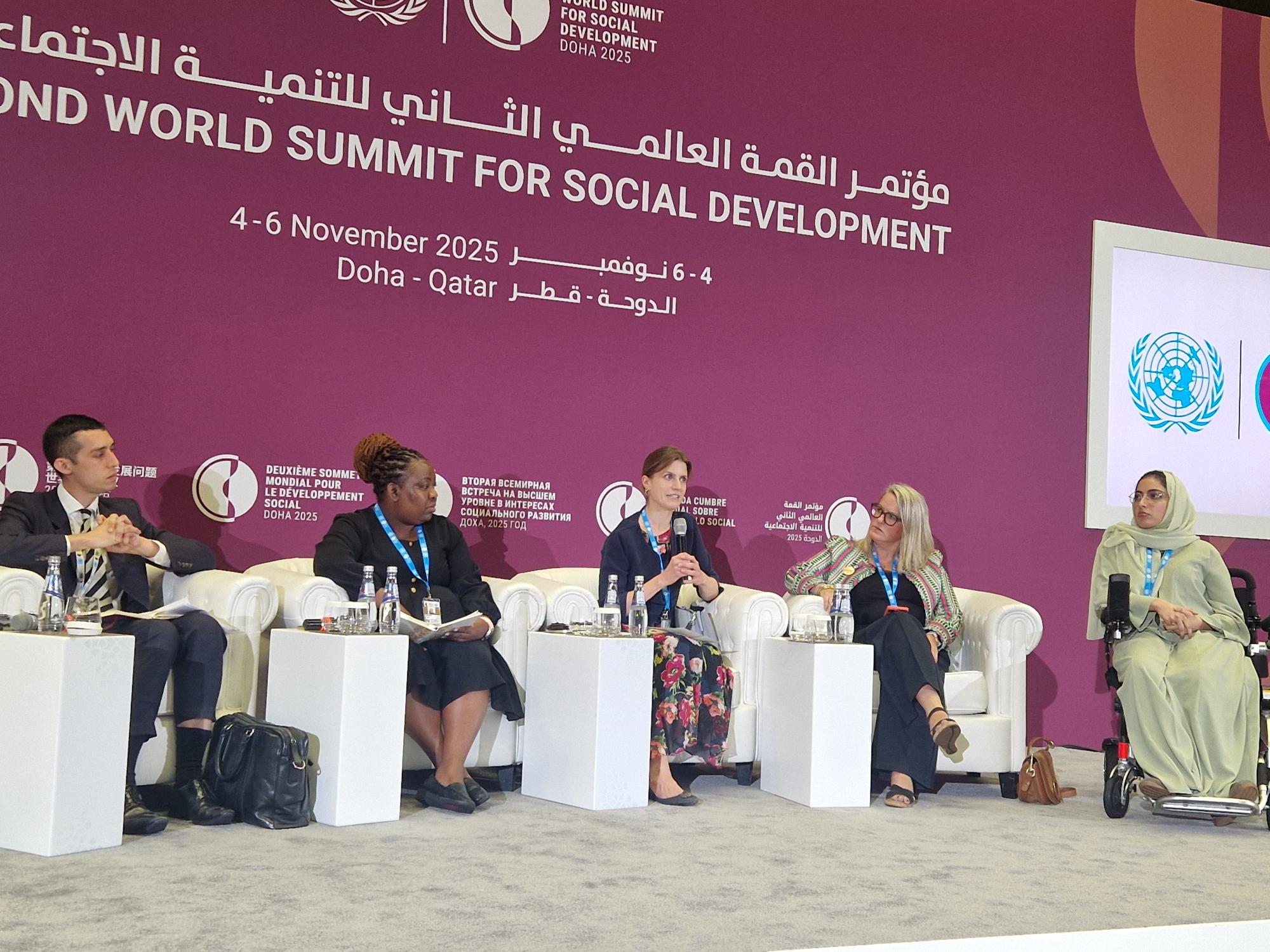Creating deep community leadership and engagement.
We’ll amplify stories and knowledge driving inclusion through partnerships, networks and DPOs.
With advocacy and engagement across key sporting and cultural moments, we’ll empower for change in collaboration with AT users and the disability innovation community.
Co-developing storytelling narratives for social change we’ll challenge stigma, while building knowledge and understanding by testing and scaling community engagement strategies to accelerate impact. Our Para-Sport Against Stigma programme will explore new and innovative ways of to amplify para sport activity and drive change as we power change through dissemination.
We will develop a network of Disabled Peoples Organisations (DOPs) aligning to Assistive Technology – developing foundational knowledge on what’s available within each country. By designing research alongside these DPOs, we’ll work collaboratively to address AT access, while building mechanisms for AT user engagement.
Using digital, social, and participatory events across our programmes we will maximise knowledge dissemination, build collaborative opportunities, transfer knowledge capital and advocate for change across emerging and established audiences.
Include sub programmes:
- Para-Sport Against Stigma
- DPO and AT User Engagement
- Sector Events and Engagement
- Amplification of the Paralympics

Sub-Programmes
- Para Sport Against Stigma: Para Sport Against Stigma (PSAS) is a research and innovation project exploring how Para and disability sport can be used to understand and shift disability stigma. Part of the FCDO-funded AT2030 programme, the project began by examining how Paralympic broadcasting could influence public perceptions across Sub-Saharan Africa in collaboration with the International Paralympic Committee.
Latest
-

Beyond Stigma Workshop - ideas, learning and sharing
Loughborough UniversityJan. 27, 2026Case Studies and ReportsThe Beyond Stigma knowledge sharing workshop created a conversation that moved beyond awareness or attitude to focus on how stigma is produced through systems, and what that means for efforts to address it. Capturing reflections, experiences and learnings from the AT2030 Para Sport Against Stigma programme, the event provided an opportunity to step back and reflect - as is captured by the visual illustration of the disussions.
-

Beyond Stigma: What happens when sport, assistive technology and storytelling meet
Jennie WongDec. 30, 2025GlobalThis article reflects on the Para Sport Against Stigma AT2030 programme, as global partners, experts, innovators and advocates joined together in London to share learnings. This piece explore how change rarely comes from a single breakthrough. More often, it comes from sustained attention, and from communities willing to sit with complexity and imagine systems differently.
-

OPD Country Level Strategy for Kenya
Global Disability Innovation HubDec. 19, 2025KenyaAT2030 ResourcesThe primary aim of this project is to develop an OPD Country Level Strategy for Kenya, titled: ‘How can technology support OPDs to build capacity, impact and influence’ - through a lens of Assistive Technologies which will include an OPD Capacity Building Framework co-created by OPDs.
-

Inclusive Employment: Advancing Access to Decent Work for Persons with Disabilities
Louise GebbettNov. 6, 2025United Arab EmiratesCase Studies and ReportsAt the Second World Summit for Social Development in Doha the GDI Hub joined a diverse and brilliant panel to explore 'Inclusive Employment: Advancing Access to Decent Work for Persons with Disabilities.' Co-hosted by the UK Government, GDI Hub, ATscale, the Global Partnership for Assistive Technology, London School of Hygiene and Tropical Medicine, International Disability Alliance, United Disabled Persons of Kenya, and Fatma Aljassim the session showcased how disability-inclusive livelihood interventions and AT can lead to decent work opportunities.
-
Second World Summit for Social Development: Inclusive Employment: Advancing Access to Decent Work for Persons with Disabilities
UK International DevelopmentNov. 5, 202515:00-16:15QatarThis solution-focused side event at the Second World Summit for Social Development will explore how to promote the inclusion of persons with disabilities in decent work. It will present global evidence on inequalities in employment in low- and- middle- income- countries (LMICs) and learnings from programmes that seek to strengthen the livelihoods of persons with disabilities. It will highlight the experiences of people with disabilities from the Global South.